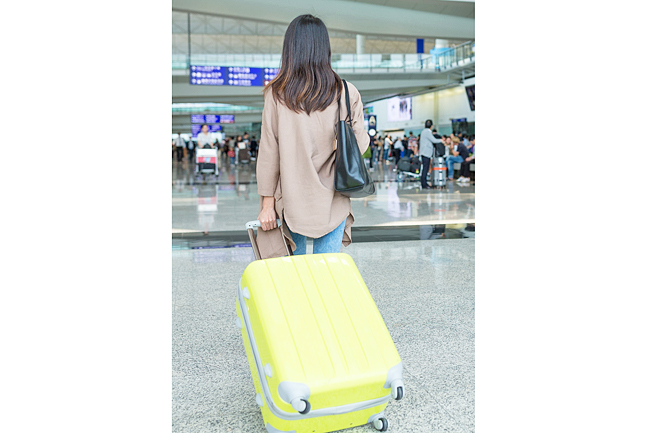CNA – Becoming an eco-conscious traveller presents its challenges, as the tourism industry often exacts a heavy toll on the environment. Our pursuit of pleasure frequently comes at the expense of local ecosystems and wildlife.
Maya Bay, situated on the remote Phi Phi Leh island in Thailand, gained fame as the backdrop for the 2000 Hollywood film The Beach. However, this newfound popularity triggered an unprecedented surge in daily visitors, peaking at 8,000, and exerted significant pressure on the bay’s natural habitats.
In response, the bay was closed to tourists in 2018 for a four-year period, allowing time for coral reefs and wildlife to recuperate. Despite these challenges, tourism offers a unique opportunity for self-discovery, connection with others, and engagement in positive environmental practices.
As travellers, we have the capacity to learn, share, and contribute to sustainable initiatives.
As a tourist, you also have influence. The money you spend, the social interactions you have and the resources you consume all help to shape an area.
So here are four pieces of advice for making your next holiday better for the environment.

SPEND LOCALLY
We’ve all heard variations on the mantra “take only memories, leave only footprints”. This message of less consumption and lower impact is a good ethos for environmentally sensitive tourism. The first thing to do is think about how you can leave more positive footprints behind.
An excellent way to make the most of your economic footprint is to stay and shop in independent businesses. These businesses tend to pay local taxes and are owned by and employ local people. More of the money you spend stays in the immediate area as a result.
Where tourist money directly benefits local people and businesses, their support for conservation is often encouraged.
TREAD LIGHTLY
Tourism creates waste and uses up resources. Treading carefully will minimise the environmental impact you have on your holiday destination.
A simple way to lower your environmental footprint is to use fewer resources at every stage of your holiday. A single tourist uses 300 litres of water in their holiday accommodation on average each night. Reusing towels, flushing the toilet less and shortening your shower time can all help to reduce demand for water resources.
Thinking about the footprints you leave as a tourist is a useful mindset. You may even become more aware of the positive legacy you can leave behind. Learn about the local area and the environmental issues that matter there. If habitat loss is a problem, contribute to local organisations that support conservation.
PLACE MATTERS
Tourism shifts you away from the familiar and gives you space for self-reflection. Research has found that people have been inspired by travel to make life changes such as relocating or shifting career.
Many keen rock climbers, for instance, adopt a minimalist and mobile lifestyle. One study on climbers’ lifestyles in the United States showed that the challenges of life on the road, gatherings at campgrounds and the considerable amount of time spent in nature can be enriching.
Rock climbers’ lifestyles are inspired by and connected to natural settings. And many alternative types of tourism are too.
These tourists can become powerful advocates for the protection of the places they care deeply about. You and those you travel with can be similar cheerleaders for the places you care about. Join organisations fighting for their conservation, contribute to their sustainable development and share your appreciation of these places with others.
STAY CURIOUS
A final thing you can do as a tourist is to keep exploring. It can be tempting to stay in a tourist bubble and not leave the confines of your resort or stick with familiar travel groups and activities.
Cruises are a classic example of bubble tourism. The places visited do not really matter; the floating hotel is the main attraction.
But cruise tourism rarely benefits local populations and brings significant negative environmental impacts.
Going beyond familiar or fashionable tourist bubbles can help you avoid such negative associations. Short-haul city breaks are a more environmentally friendly option.
Travellers to these destinations are more likely to use means of transportation that are associated with less carbon dioxide emissions than long-haul travel, such as trains or coaches. And in urban areas, their activities are likely to take place in a concentrated geographical area.
Thinking about the footprints you leave and the memories you take can help you to become a more environmentally aware tourist. Leave positive imprints behind, tread carefully, put yourself out there and keep exploring. – Brendan Canavan






